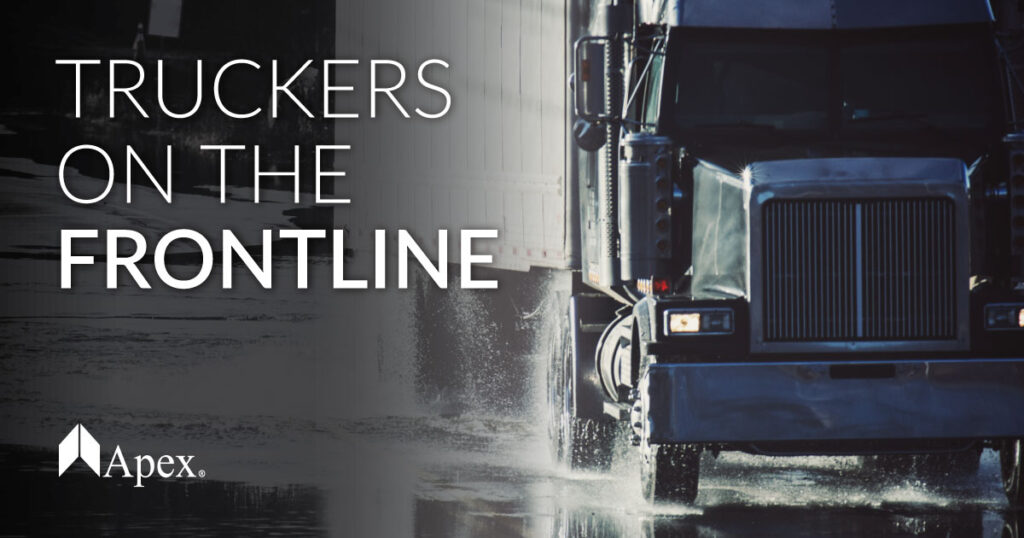Natural disasters, whether they’re hurricanes, tornadoes, earthquakes, or snowstorms, are equally destructive to lives, homes, and businesses. They can also severely disrupt the supply chain by land, sea, and air. But especially during natural disasters our intrepid truckers keep supply chains moving across the country.
Truckers Are Our Lifelines – Again
Disaster relief haulers have become our lifelines yet again. Carriers and their disaster relief trucks take to the highways with supplies like water, food, clothing, medical supplies, and even building equipment. That goes a long way in making the aftermath of a catastrophe a bit more bearable.
Trucking through disaster situations comes with its own set of challenges. Road closures, diesel fuel shortages, and delivery destinations destroyed or severely compromised by a hurricane, tornado, or earthquake, are just a few roadblocks to list. They also need to operate with extreme caution, keeping themselves safe during the storm.
What Are FEMA Loads?
Truckers can continue to be our lifeline during a time of natural disaster – with hurricane season currently in full swing – by hauling FEMA loads. The Federal Emergency Management Agency (FEMA) is the government agency that prepares for and responds to disasters. FEMA loads are disaster relief loads issued by the government. These loads usually go directly through freight brokers only. These loads also tend to come with higher rates, but also more risks and delays.
What to Know About FEMA Loads
There are a few things to note when turning your rig into a disaster relief truck. Always keep in mind that FEMA loads are not your everyday loads. Here are important points to know when considering hauling a FEMA load:
- The pay could be lucrative – FEMA loads can be profitable because of their need and urgency. Most small to medium-sized trucking companies will haul FEMA loads through the usual channels, which means a freight broker.
- Plan on delays and logistical problems – Plan for delays because of the impacted areas truckers drive into. They should also plan for logistical problems in the delivery itself as they may find challenges with their delivery destination.
- Check on credit and broker validity – Checking credit on brokers offering FEMA loads is super important because of the urgency, the need, and delays. Know who you are doing business with, as fraudsters will use the opportunity to their advantage. Also, you could verify that the broker is FEMA registered as extra verification that you’re delivering a FEMA load.
- Get paid for unpredictability – Disaster relief trucking jobs are unpredictable, so getting paid for extra delay time is important. Document your time extra carefully. While HOS (Hours of Service) rules tend to get suspended during emergencies, continue to record your hours via ELD (electronic logging device) so you have proof of your work.
So, hauling FEMA loads can be good money and they can leave you with a good feeling that you assisted your fellow American during a time of great need. FEMA loads also serve as further proof that truckers are truly our lifeline, and their efforts are paramount to keep supply chains moving even when natural disasters threaten to derail life as we know it.
Are you ready to factor your loads, including your FEMA loads, with Apex? Apex can help you grow your trucking company with expertise, tools, services, excellent customer care, and plenty of cash flow management. Call us at 855-369-2739 or get started here.

